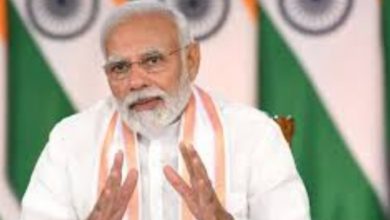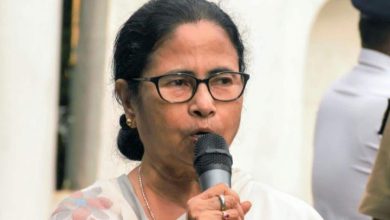Triple talaq bill: Draft law is more focused on victimising Muslim women rather than empowering them

In August 2017, the Supreme Court passed a seemingly remarkable judgment in the Shayara Bano v Union of India on the practice of instant triple talaq, stating that it was “manifestly arbitrary” and “against the basic tenets of Islam”. The court split 3:2 – the minority opinion, including erstwhile Chief Justice JS Khehar, had asked the Centre to legislate on the matter of talaq-e-biddat, and the majority opinion stated that the practice is inherently illegal and unconstitutional. The Centre, in a bid to stay true to the judiciary, introduced the triple talaq bill and passed it in the Lok Sabha on Thursday.
The bill is titled ‘The Muslim Women (Protection of Rights on Marriage) Bill, 2017’ and its objective is “to protect the rights of married Muslim women and to prohibit divorce by pronouncing talaq by their husbands”. Under the bill, the declaration of talaq “by a person upon his wife, by words, either spoken or written or in electronic form or in any other manner whatsoever, void and illegal.” The practice of triple talaq is criminalised under this bill; a cognisable and non-bailable offence under the Code of Criminal Procedure, 1973, wherein the punishment for pronouncing talaq upon one’s wife is imprisonment that may extend to three years and fine. Chapter III of the bill highlights provisions on the ‘Protection of Rights of Married Muslim Women’. It provides for a ‘subsistence allowance’, determined by a magistrate, for her and any dependent children. A Muslim woman who has been subjected to triple talaq is also entitled to custody of her minor children.
The bill is followed by a ‘Statement of Objects and Reasons’– a simple rationale about the factors that spurred the draft legislation. It talks about the liberation of Indian Muslim women from the “practice of capricious and whimsical method of divorce, by some Muslim men, leaving no room for reconciliation.” The statement also affirms that there was a need for state action in order to give effect to the order of the apex court and to redress the grievances of victims of illegal divorce. According to the statement, it would meet the objectives of gender justice and equality of married Muslim women.
On a thorough examination of the draft legislation, it is apparent that nuances of women’s human rights have not been taken into account. The concept of ‘subsistence allowance’ is abstract at best, and knowing how Muslim property and maintenance laws work, the calculation of such allowance should have been prioritised. Moreover, the ‘Statement of Objects and Reasons’ within the bill proposes to mete out justice to the “hapless married Muslim woman” and save her from the throes of instant triple talaq – it makes victims out of Muslim women living in India. The statement grossly victimises Muslim women living in India – “In order to prevent the continued harassment being meted out to the hapless married Muslim women due to talaq-e-biddat, urgent suitable legislation is necessary to give some relief to them. The bill proposes to declare pronouncement of talaq-e-biddatby Muslim husbands void and illegal in view of the Supreme Court verdict. Further, the illegal act of pronouncing talaq-e-biddat shall be a punishable offence. This is essential to prevent this form of divorce, wherein the wife does not have any say in severing the marital relationship. It is also proposed to provide for matters such as subsistence allowance from the husband for the livelihood and daily supporting needs of the wife, in the event of husband pronouncing talaq-e-biddat, and, also of the dependent children. The wife would also be entitled to custody of minor children.”
The bill looks at talaq-e-biddat in an isolated manner – it does not take into account the domestic violence, cruelty, rape, sexual assault that the “hapless married Muslim woman” might have been subjected to in the course of her marital relationship. Under the bill, the protection of the rights of Muslim women does not include protection, prevention or redressal of violence against Muslim wives by their husbands.
Is this a deliberate attempt to quash triple talaq, “empower” Muslim women, while at the same time hiding violence in marital relationships?
Criminalisation of pronouncement of triple talaq as a non-bailable and cognisable offence would mean that anyone can report a Muslim man if he pronounces talaq-e-biddat against his wife. Is this an attempt of the government to saunter into the marital homes of the “hapless married Muslim woman”? But hasn’t the Supreme Court and the Centre repeatedly spoken about the sanctity of the matrimonial home and how the entry of the state in a matrimonial relationship would prove to be a “ruthless destroyer” of the institution of marriage? For years together, the government has been reluctant to reconsider the marital rape exemption within Section 375 of the Indian Penal Code. The state does not want to introduce constitutional law in the home as it is inappropriate and might cause “weakening of the marriage bond”. Even a recent case of 2014 (State v Vikash), the judiciary refused to intervene in the marital relationship by refusing to identify that marital rape had taken place – “[t]he prosecutrix and accused being legally wedded husband and wife, the prosecutrix being major, the sexual intercourse between the two, even if forcible, is not rape.”
Earlier this year, while debating the case on marital rape around the same time as the Shayara Bano case, the Centre stated that if marital rape is declared a crime, it would hit the institution of marriage. The former governor of Mizoram, Swaraj Kaushal, was reported tweeting – “There is nothing like marital rape. Our homes should not become police stations…There will be more husbands in the jail, than in the house.”
When legislating on triple talaq and “empowering” Muslim women, why isn’t the sanctity of marriages a concern? Why is violence, assault, torture and harassment condoned by the state under the pretext of preserving the family system and instant triple talaq criminalised? Moreover, what is this abject sense of “empowerment” if the legislation is passed quietly, without consulting the community of Muslim women and any other stakeholders on what they would have wanted in the law? The bill has been drafted by an exclusive committee of privileged men who are marginalising Muslim women’s interests and stifling their voices.
The triple talaq bill provides no new remedies to Muslim women who are subject to talaq-e-biddat by their husbands. In fact, it seems unnecessary and redundant when the Supreme Court had already invalidated the practice. In my opinion, the bill only serves one purpose – it allows elitist Hindu men to save the hapless married Muslim women from Muslim men.





